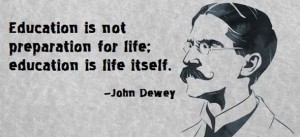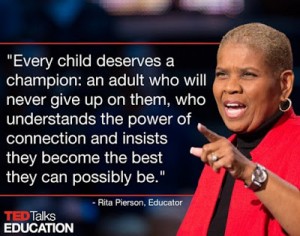On the Love of Language, Communication, and the Search for Meaning
 In this very personal blog post, I would like to share my thoughts on education and how I have tried to make them part of the English for Social Interaction (ESI) elective course I am teaching.
In this very personal blog post, I would like to share my thoughts on education and how I have tried to make them part of the English for Social Interaction (ESI) elective course I am teaching.
Recently I came across something I had written as a student: a remark about the need for teachers to be able to establish a connection with their students. Apart from the academic knowledge we are supposed to impart on our students, I still believe that establishing a connection with them is of utmost importance: things like being friendly, using the students’ names when we can, encouraging and appreciating their individual talents, giving them personalised feedback on their performance, taking an interest in them, in what they like, what books they read, what music they listen to, what makes them tick, are some of the basic elements of connecting to other people, and I believe the classroom is a perfect place for us teachers to connect to our students. I think that if we want to teach people anything we consider valuable, we ought to be able to listen to them as well and appreciate what is of value to them. And I believe that by listening more to our students, we teachers also have an awful lot to learn.
Secondly, I see the clasroom not as a frontal-teaching space where I have something important to say and the students ought to listen carefully, take down notes and then repeat it at the next exam; I see it as a shared space, a community, where all of us come to learn from each other, support each other and grow in our understanding of language and the world we live in. That’s why student participation is of utmost importance in these classes. That’s why encouraging small-group discussions, student cooperation, team-work projects, mutual support, and so on is so important. With John Dewey, I believe that education is not preparation for life, but life itself; and that it is our task to turn the students’ life at school into opportunities for meaningful experiences, into a journey of self-discovery, an opportunity not only to devour information but to be creative, to experiment and to self-actualise.
How much the students will take this opportunity though is up to them; meaning is not something static that you can transfer from one head into another; it is negotiated, co-created, and often born out of dialogue and exchange of ideas. I have certainly noticed that in my classes. In some groups, I have been able to reach depths that have been out of the question in others; it is the students’ responses, reactions, questions, and comments that lead you to say certain things and leave out others. Meaning is the result of true and authentic communication and it’s a two-way street, with both parties involved in creating it.
Communication is, to my mind, at the heart of language and therefore the main reason why I am interested in  language at all: not so much in its structure and formal features, its syntax or vocabulary. I am fascinated by the ability of language to create meaningful communication between people; to act as an agent of change in society; to “do things” (as J. L. Austin would say) and open doors (metaphorically and even literally, as in “Open Sesame!”). Which takes me to the meaning of the word “phililogy”: not the meaning referring to the 19th century understanding of the word as the study of literary texts and of written records, related to historical and comparative linguistics, but rather, the original meaning, originating from the terms φίλος (philos), meaning “love, affection, loved, beloved, dear, friend” and λόγος (logos), meaning “word, articulation, reason”.
language at all: not so much in its structure and formal features, its syntax or vocabulary. I am fascinated by the ability of language to create meaningful communication between people; to act as an agent of change in society; to “do things” (as J. L. Austin would say) and open doors (metaphorically and even literally, as in “Open Sesame!”). Which takes me to the meaning of the word “phililogy”: not the meaning referring to the 19th century understanding of the word as the study of literary texts and of written records, related to historical and comparative linguistics, but rather, the original meaning, originating from the terms φίλος (philos), meaning “love, affection, loved, beloved, dear, friend” and λόγος (logos), meaning “word, articulation, reason”.
Love and affection are seldom related to learning and hard work and often associated with fun and pleasure. But I believe education should have a fun element in it, should be more edutainment (education + entertainment). Not in the sense that some current TV programmes, social media and entertainment facilities try to do (focusing too much on the consumption of pleasure and diversion and too little on deriving any meaning out of it). But the pleasure of discovery, of self-discovery, of challenging yourself and finding your true talents and limitations. So this is an area where the role  plays come into place. They allow students to step into someone else’s shoes, to build empathy, to refine their communication skills, to work cooperatively; but they also push them to explore their hidden talents.
plays come into place. They allow students to step into someone else’s shoes, to build empathy, to refine their communication skills, to work cooperatively; but they also push them to explore their hidden talents.
These are some of the ideas that have informed my approach to teaching the ESI elective. I hope these ideas can be seen in the class activities, in the class atmosphere, and in my attitude to the students. It is my belief that we as teachers have a responsibility to teach not only our respective theoretical disciplines, but also – and even more importantly – to show them that we care about them. This is particularly important since many of our students will be teachers themselves in just a few years’ time.
 Finally, I would like to conclude with a thought by American educator Rita Pierson who says that kids don’t learn from people they don’t like. The full talk (just a few minutes long and totally worth it) can be followed on the TED.com site and I strongly recommend it.
Finally, I would like to conclude with a thought by American educator Rita Pierson who says that kids don’t learn from people they don’t like. The full talk (just a few minutes long and totally worth it) can be followed on the TED.com site and I strongly recommend it.
